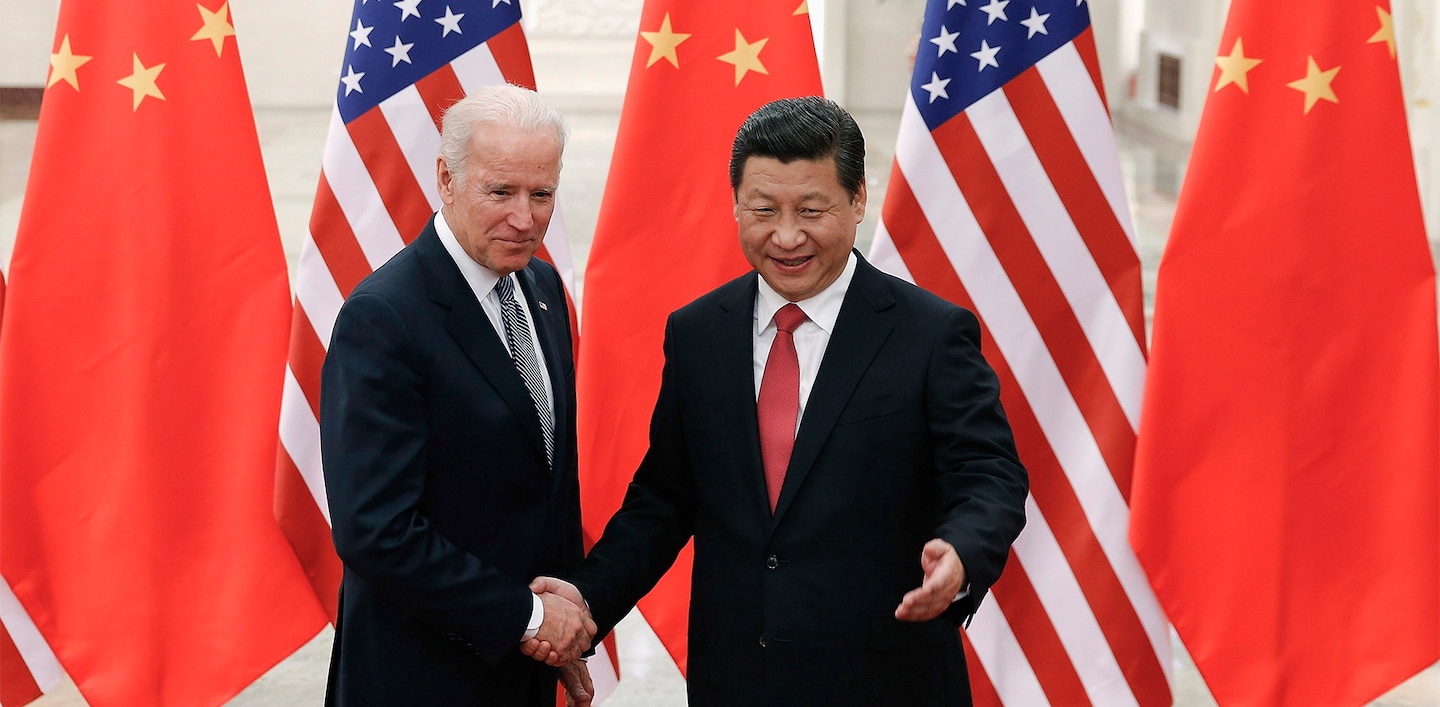Does China want Trump or Biden in the White House? It’s complicated.

As Americans weigh the choice between Trump and Democratic presidential nominee Joe Biden in the coming weeks, the Chinese leadership in Beijing is also facing consequential questions: whether another four years of Trump, or a Biden presidency, would be more beneficial for China’s strategic aims — and how Beijing should react to either man in the Oval Office.
The issue resurfaced recently after William R. Evanina, the top U.S. intelligence community official overseeing election security, said in a statement that China’s leaders prefer that Trump, whom they view as unpredictable, leave office.
“The Trump administration is very emotional, very wild,” said Zhu Feng, director of international relations at Nanjing University.
But it is hard to say that China would genuinely prefer Biden, either.
Despite pressuring Beijing with a steady drumbeat of punishing policies that have not been seen in 40 years of formal relations under either Republican or Democratic administrations, Trump in some ways has offered Xi a window of opportunity on the world stage and in domestic politics.
Previously under pressure at home from the slowing economy and popular disillusionment with the Chinese Communist Party, Xi has been able to blame Washington’s “suppression” for all of China’s travails while casting himself as a defender against foreign bullying.
Notwithstanding a bruising trade war, China has conceded little on fundamental U.S. demands for greater intellectual property protections and a lesser state role in helping Chinese firms compete.
On the security front, Beijing has asserted sweeping new powers for itself, pushing through the contentious Hong Kong national security law in the name of beating back U.S. intrusion. And Beijing has sought a greater international preeminence and diplomatic space, as Trump moved to withdraw from international bodies such as the World Health Organization and injected distrust into U.S. relationships with allies from Asia to Europe.
“I had a Chinese scholar say to me: If we could convince all the countries in the world to come together and damage those pillars of U.S. strength, we could not be as successful as Donald Trump has been single-handedly,” said Paul Haenle, director of the Carnegie-Tsinghua Center in Beijing and former China director on the National Security Council under Presidents Barack Obama and George W. Bush.
“Not all senior Chinese officials agree with this very zero-sum view, but they do recognize there are benefits with a Trump presidency,” he said.
The Chinese have identified that Trump personally does not care as much, or is not as knowledgeable, as other hawks in his administration about the key territorial issues that the Communist Party considers to be core national interests. That assessment was confirmed in a recent tell-all book by former national security adviser John Bolton, who described a scene in the White House in which Trump likened Taiwan’s strategic importance to the tip of a Sharpie pen.
“The thinking is, if the person who is most important in the U.S. system doesn’t really care about Taiwan, Hong Kong, Xinjiang or Tibet and will be a lot of bark and not a lot of bite, then maybe that means for the Chinese it’s a window of strategic opportunity to advance on those issues on the second term,” Haenle said.
The view is very different for China’s business sector, which has been battered by the Trump administration. China’s high-tech companies have been hit especially hard, with sanctions on hardware giant Huawei and social media behemoth Tencent threatening to cripple key businesses.
Gao Wenbo, a public policy researcher at South China University of Technology, wrote in a recent essay that a Biden win would open up economic opportunities for China, but he warned it could also bring risks.
“With the background of the U.S.-China great-power competition, Biden’s efforts to rebuild U.S. alliances and strengthen America’s global leadership position also suggest some risks and challenges for China,” he wrote.
The Democratic Party’s platform for the upcoming election reflects the growing bipartisan consensus that the United States needs to take a tough line against a strengthening China. But it is considerably less harsh than the Trump administration’s rhetoric on the country.
“Democrats will be clear, strong, and consistent in pushing back where we have profound economic, security, and human rights concerns about the actions of China’s government,” the platform says. “Democrats believe the China challenge is not primarily a military one, but we will deter and respond to aggression.”
Zhu, the Nanjing University scholar who sometimes advises the Chinese government, said another four years of Trump could plunge the two countries into a new Cold War. But Beijing should be prepared to make “serious” offers if the opportunity presented itself with a Biden win, he said.
“Beijing should avoid any illusions that a Biden presidency will automatically change everything, but Beijing should be ready and recognize what sort of efforts China could step up and do,” he said. “A Biden administration should also give us some sort of encouragement to come to the table.”
But the space for a Biden administration to maneuver on China policy has shrunk in recent weeks, with Beijing’s crackdown on activists and local media in Hong Kong drawing broad outcry in the West.
“It takes two hands to clap,” Haenle said.
Liu Yang, Wang Yuan and Lyric Li in Beijing contributed to this report.






